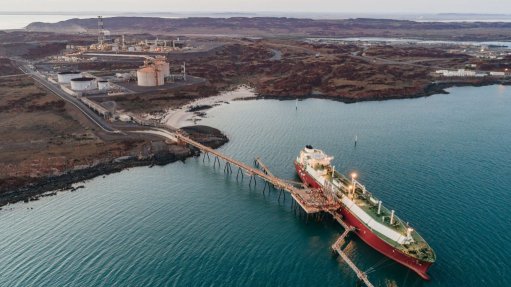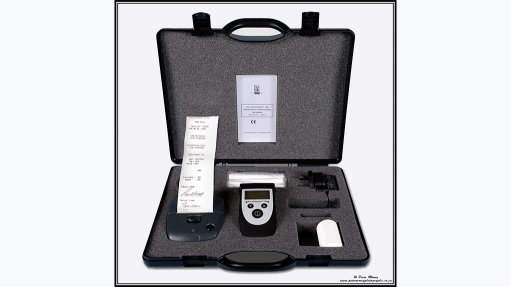Multinational oil company promotes EALs growth
Biodegradable, environmentally acceptable lubricants (EALs) offer companies a solution to balance productivity and environmental protection, with performance levels comparable with those of conventional fluids, says multinational oil and gas company Shell.
These EALs can also help mine operators to meet voluntary decarbonisation targets as part of their wider sustainability efforts. With these goals in mind, Shell plans to introduce a broader portfolio of biodegradable hydraulic oils, gear oils and greases.
In the absence of a regulatory compliance push, one of the challenges in expanding the use of EALs is the misconception that they perform poorly in comparison to conventional fluids.
“We just launched a higher performance EAL hydraulic oil, which we know can at least get 2 500 hours, if not 3 000 hours, of life in selected mobile equipment. The EALs can certainly meet, if not exceed, the performance level offered by some mineral-based fluids,” says Shell, global portfolio, marketing and development manager Emma Mallinson.
Unfortunately, the demand for biodegradable EALs remains low in all industries and only comprises between 1% and 3% of all lubricants in the global market. However, a report by market research and consulting firm Kline, Merkle and Sears estimates an increase in growth of about 3% to 5% globally for EALs over the next five to ten years.
Using biodegradable EALs enables companies to operate near environmentally sensitive areas and manage their impact on local ecosystems, says Mallinson.
Shell’s EALs are fully synthetic, biodegradable oils that are derived from renewable and sustainable sources – mainly from natural-based fatty acids, she highlights.
Six out of ten mining executives cite maintaining a mine’s licence to operate as the biggest risk facing their business – with the focus on decarbonisation and reducing the environmental impact of operations also identified as a leading risk. By working together with mine operators, Shell can offer a range of solutions to reduce the impact on the environment, reduce emissions and lower the total cost of ownership, including biodegradable lubricants.
In the case of spills of conventional lubricants, companies can face huge financial and reputational cost. Shell’s biodegradable lubricants offer low aquatic ecotoxicity and no bioaccumulation, vastly reducing potential damage along with the cost of cleanup and any reputational harm, offering greater protection for soil and groundwater in the event of a hose leak or spill than conventional lubricants, says Mallinson.
“Although most of Shell’s production of biodegradable lubricants is Europe-centric – because that is currently where the largest demand for biodegradables is – that doesn't mean that this will be the case in the future.”
Europe has one of the most highly legislated markets in the world in terms of moving towards a green economy. As legislation continues to tighten globally, it is likely that growing demand will propel a surge in technological progress – producing EALs that outperform today’s conventional lubricants, claims Mallinson.
Some EALs are currently more expensive than standard lubricants, highlights Shell product application specialist Hentie Spangenberg, and as there is no strict legislation mandating the use of biodegradable lubricants, there is not much of a market for EALs in South Africa yet.
As South African legislation tightens and operators gain a deeper understanding of the performance and environmental impact benefits that the use of EALs can deliver, EALs should gain more traction in African markets, especially in the mining sector, he adds.
Mallinson asserts that there are misconceptions that biodegradable fluids are not approved by original-equipment manufacturers (OEM). A large percentage of installed equipment in mining operations, whether it be a fixed plant or mobile equipment, can use biodegradable lubricants. Shell’s Naturelle products carry a wide range of OEM approvals and Shell’s technical experts can provide guidance to clients on compatibility and conversion procedures, she concludes.
Article Enquiry
Email Article
Save Article
Feedback
To advertise email advertising@creamermedia.co.za or click here
Press Office
Announcements
What's On
Subscribe to improve your user experience...
Option 1 (equivalent of R125 a month):
Receive a weekly copy of Creamer Media's Engineering News & Mining Weekly magazine
(print copy for those in South Africa and e-magazine for those outside of South Africa)
Receive daily email newsletters
Access to full search results
Access archive of magazine back copies
Access to Projects in Progress
Access to ONE Research Report of your choice in PDF format
Option 2 (equivalent of R375 a month):
All benefits from Option 1
PLUS
Access to Creamer Media's Research Channel Africa for ALL Research Reports, in PDF format, on various industrial and mining sectors
including Electricity; Water; Energy Transition; Hydrogen; Roads, Rail and Ports; Coal; Gold; Platinum; Battery Metals; etc.
Already a subscriber?
Forgotten your password?
Receive weekly copy of Creamer Media's Engineering News & Mining Weekly magazine (print copy for those in South Africa and e-magazine for those outside of South Africa)
➕
Recieve daily email newsletters
➕
Access to full search results
➕
Access archive of magazine back copies
➕
Access to Projects in Progress
➕
Access to ONE Research Report of your choice in PDF format
RESEARCH CHANNEL AFRICA
R4500 (equivalent of R375 a month)
SUBSCRIBEAll benefits from Option 1
➕
Access to Creamer Media's Research Channel Africa for ALL Research Reports on various industrial and mining sectors, in PDF format, including on:
Electricity
➕
Water
➕
Energy Transition
➕
Hydrogen
➕
Roads, Rail and Ports
➕
Coal
➕
Gold
➕
Platinum
➕
Battery Metals
➕
etc.
Receive all benefits from Option 1 or Option 2 delivered to numerous people at your company
➕
Multiple User names and Passwords for simultaneous log-ins
➕
Intranet integration access to all in your organisation
















